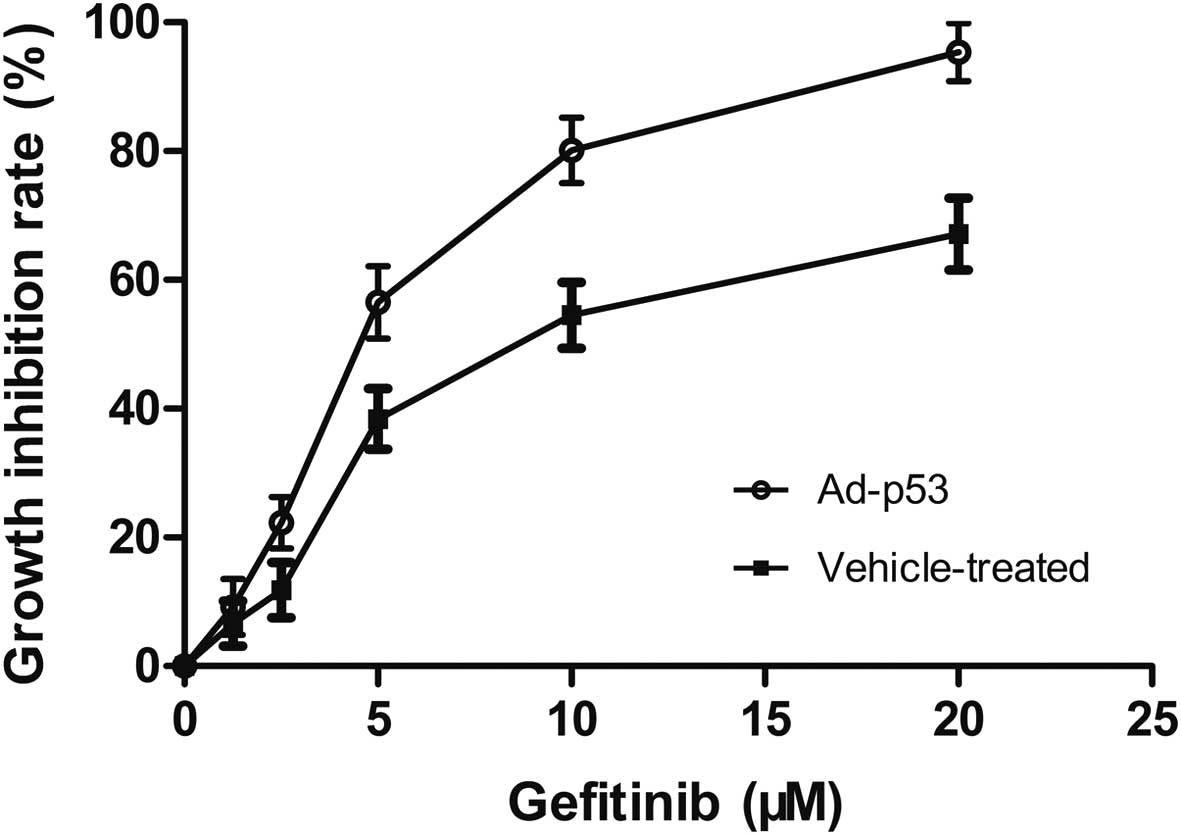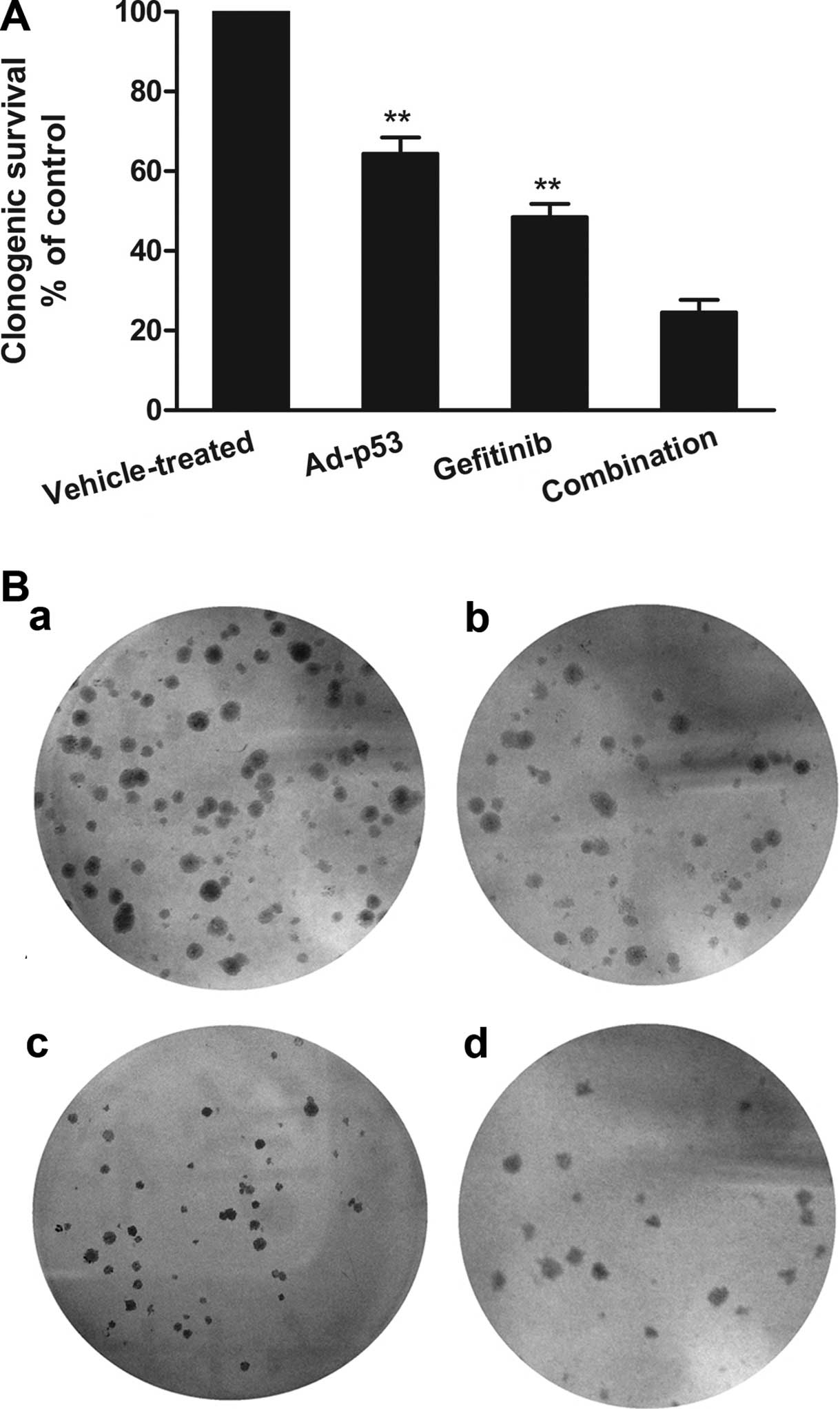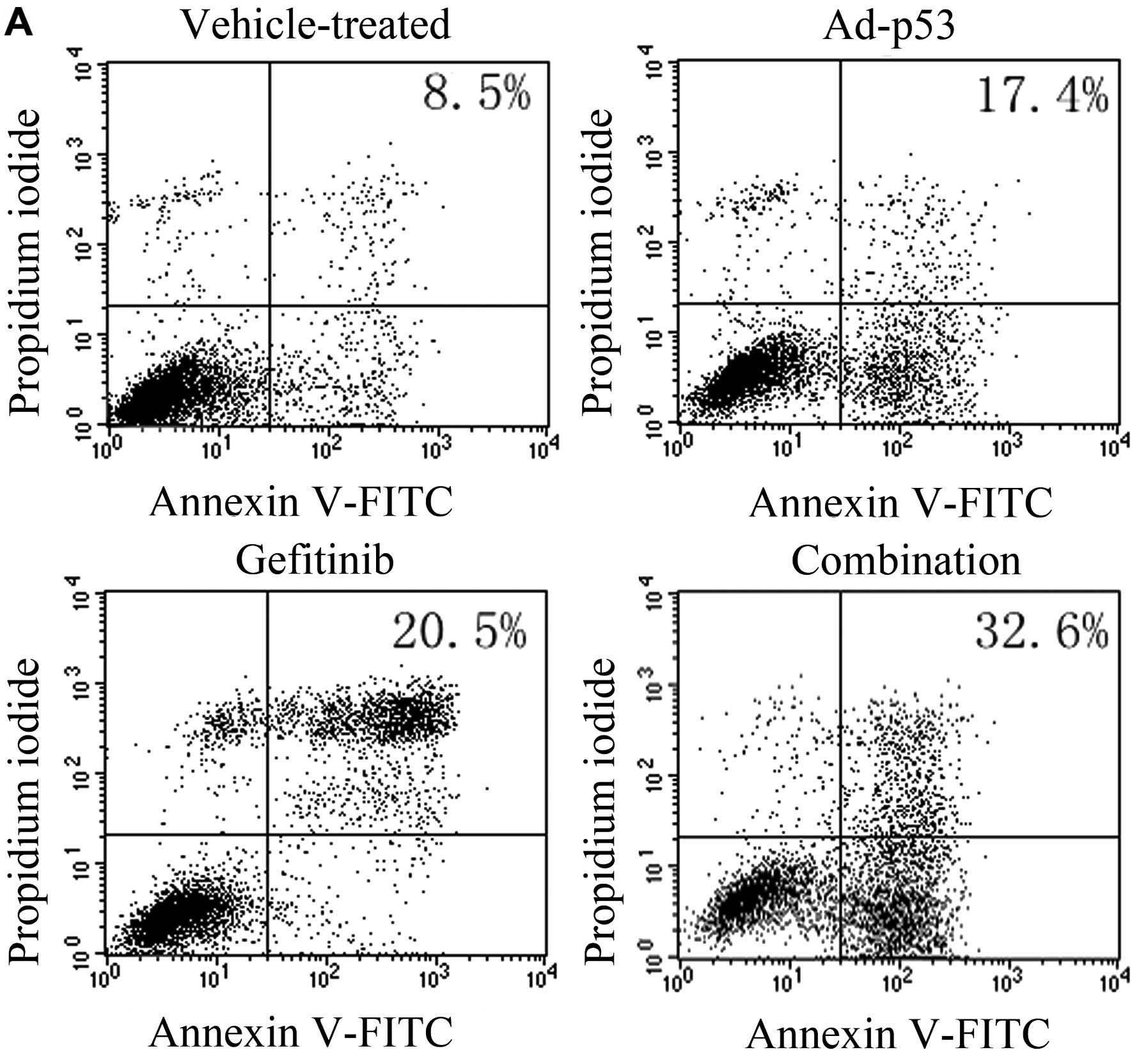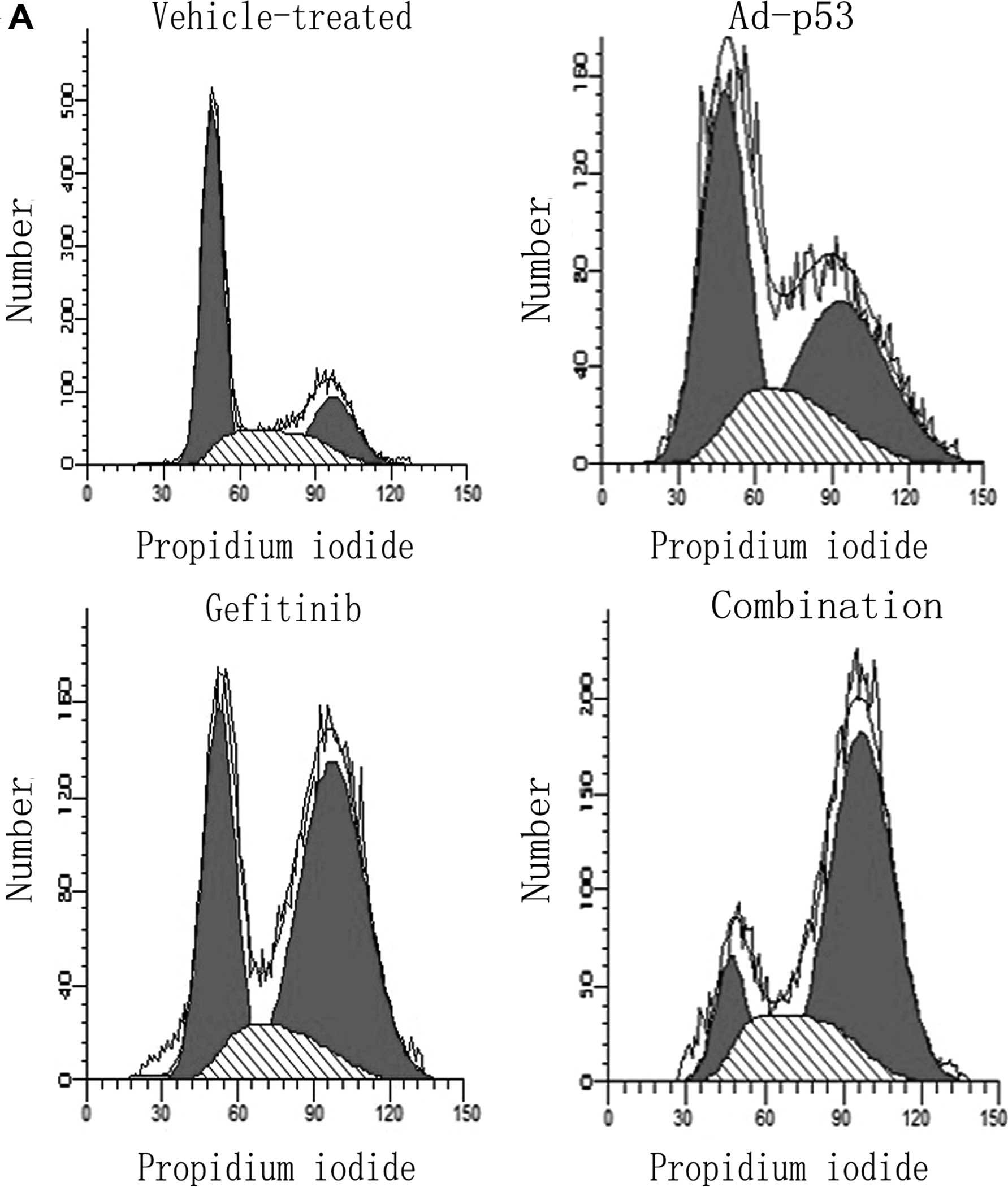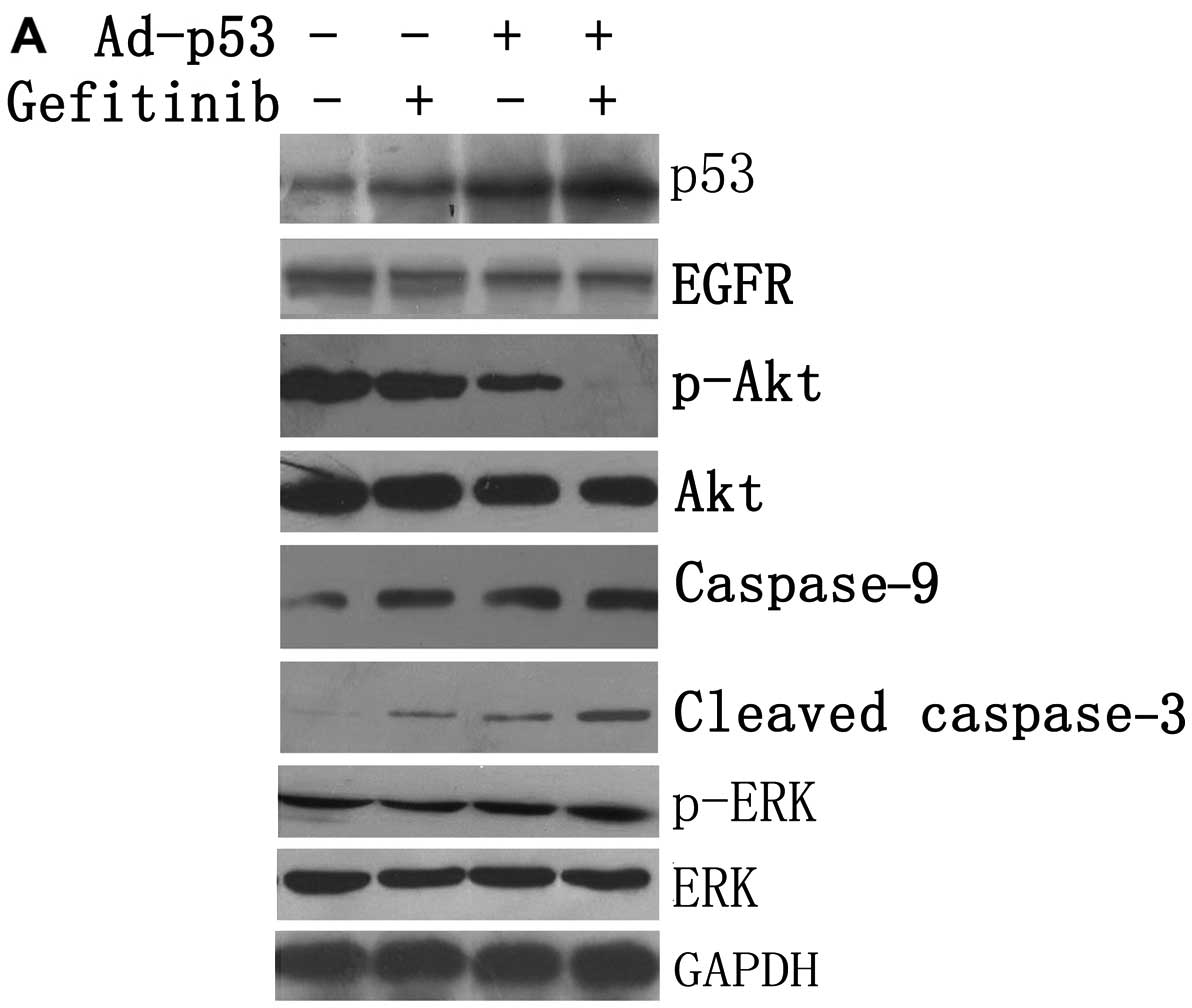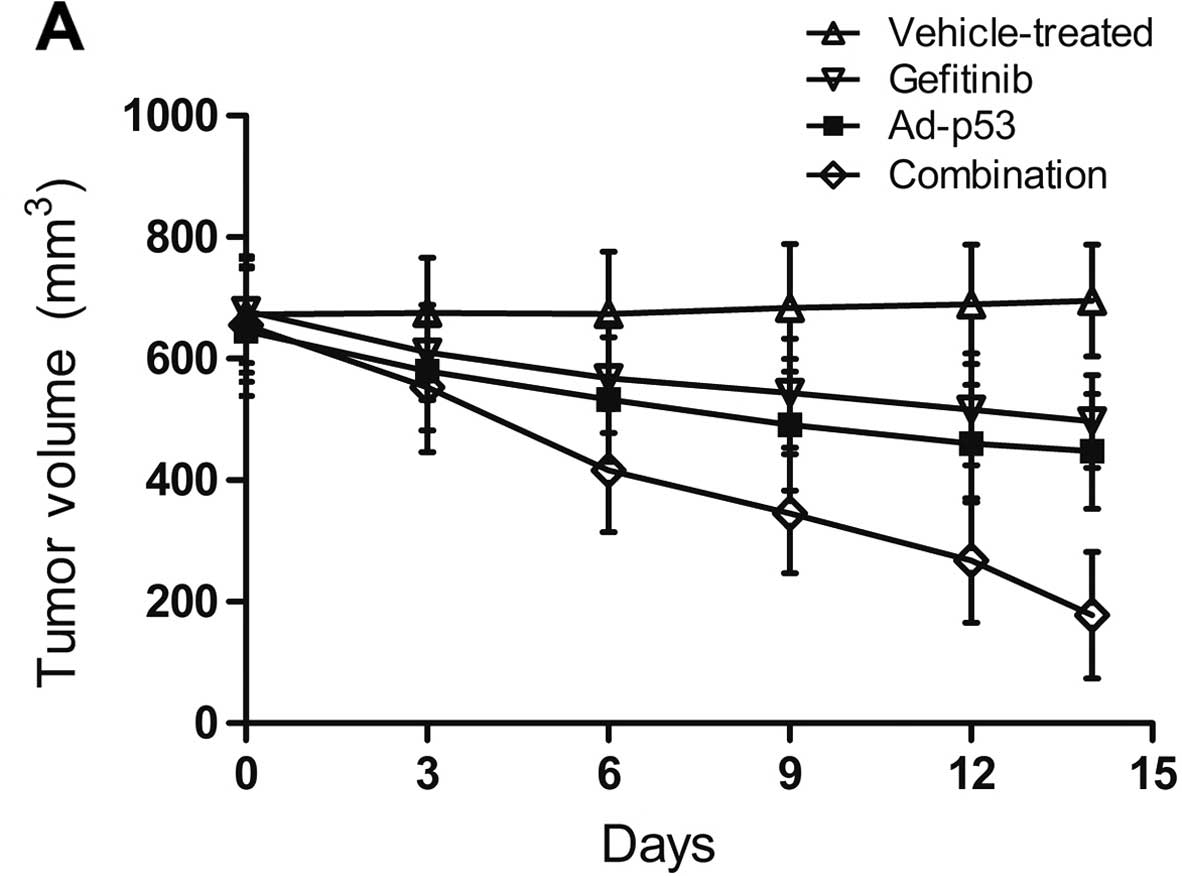|
1
|
Podo F, Buydens LM, Degani H, et al:
Triple-negative breast cancer: present challenges and new
perspectives. Mol Oncol. 4:209–229. 2010. View Article : Google Scholar : PubMed/NCBI
|
|
2
|
Herold CI and Anders CK: New targets for
triple-negative breast cancer. Oncology. 27:846–854.
2013.PubMed/NCBI
|
|
3
|
Alvarez RH, Valero V and Hortobagyi GN:
Emerging targeted therapies for breast cancer. J Clin Oncol.
28:3366–3379. 2010. View Article : Google Scholar : PubMed/NCBI
|
|
4
|
Viale G, Rotmensz N, Maisonneuve P, et al:
Invasive ductal carcinoma of the breast with the ‘triple-negative’
phenotype: prognostic implications of EGFR immunoreactivity. Breast
Cancer Res Treat. 116:317–328. 2009. View Article : Google Scholar
|
|
5
|
Dent R, Trudeau M, Pritchard KI, et al:
Triple-negative breast cancer: clinical features and patterns of
recurrence. Clin Cancer Res. 13:4429–4434. 2007. View Article : Google Scholar : PubMed/NCBI
|
|
6
|
Herbst RS, Giaccone G, Schiller JH, et al:
Gefitinib in combination with paclitaxel and carboplatin in
advanced non-small-cell lung cancer: a phase III trial - INTACT 2.
J Clin Oncol. 22:785–794. 2004. View Article : Google Scholar : PubMed/NCBI
|
|
7
|
von Minckwitz G, Jonat W, Fasching P, et
al: A multicentre phase II study on gefitinib in taxane- and
anthracycline-pretreated metastatic breast cancer. Breast Cancer
Res Treat. 89:165–172. 2005. View Article : Google Scholar : PubMed/NCBI
|
|
8
|
Baselga J and Arteaga CL: Critical update
and emerging trends in epidermal growth factor receptor targeting
in cancer. J Clin Oncol. 23:2445–2459. 2005. View Article : Google Scholar : PubMed/NCBI
|
|
9
|
Baselga J, Albanell J, Ruiz A, et al:
Phase II and tumor pharmacodynamic study of gefitinib in patients
with advanced breast cancer. J Clin Oncol. 23:5323–5333. 2005.
View Article : Google Scholar : PubMed/NCBI
|
|
10
|
Janmaat ML and Giaccone G: Small-molecule
epidermal growth factor receptor tyrosine kinase inhibitors.
Oncologist. 8:576–586. 2003. View Article : Google Scholar : PubMed/NCBI
|
|
11
|
Normanno N, De Luca A, Maiello MR, et al:
The MEK/MAPK pathway is involved in the resistance of breast cancer
cells to the EGFR tyrosine kinase inhibitor gefitinib. J Cell
Physiol. 207:420–427. 2006. View Article : Google Scholar : PubMed/NCBI
|
|
12
|
Ferrer-Soler L, Vazquez-Martin A, Brunet
J, Menendez JA, De Llorens R and Colomer R: An update of the
mechanisms of resistance to EGFR-tyrosine kinase inhibitors in
breast cancer: Gefitinib (Iressa™)-induced changes in the
expression and nucleo-cytoplasmic trafficking of HER-ligands
(Review). Int J Mol Med. 20:3–10. 2007.PubMed/NCBI
|
|
13
|
Vousden KH and Lu X: Live or let die: the
cell’s response to p53. Nat Rev Cancer. 2:594–604. 2002. View Article : Google Scholar : PubMed/NCBI
|
|
14
|
Petitjean A, Mathe E, Kato S, Ishioka C,
Tavtigian SV, Hainaut P and Olivier M: Impact of mutant p53
functional properties on TP53 mutation patterns and tumor
phenotype: lessons from recent developments in the IARC TP53
database. Hum Mutat. 28:622–629. 2007. View Article : Google Scholar : PubMed/NCBI
|
|
15
|
Brosh R and Rotter V: When mutants gain
new powers: news from the mutant p53 field. Nat Rev Cancer.
9:701–713. 2009.PubMed/NCBI
|
|
16
|
Grob TJ, Heilenkötter U, Geist S, et al:
Rare oncogenic mutations of predictive markers for targeted therapy
in triple-negative breast cancer. Breast Cancer Res Treat.
134:561–567. 2012. View Article : Google Scholar : PubMed/NCBI
|
|
17
|
Cancer Genome Atlas Network. Comprehensive
molecular portraits of human breast tumours. Nature. 490:61–70.
2012. View Article : Google Scholar : PubMed/NCBI
|
|
18
|
Ding L, Ellis MJ, Li S, et al: Genome
remodelling in a basal-like breast cancer metastasis and xenograft.
Nature. 464:999–1005. 2010. View Article : Google Scholar : PubMed/NCBI
|
|
19
|
Huang S, Benavente S, Armstrong EA, Li C,
Wheeler DL and Harari PM: p53 modulates acquired resistance to EGFR
inhibitors and radiation. Cancer Res. 71:7071–7079. 2011.
View Article : Google Scholar : PubMed/NCBI
|
|
20
|
Brand K, Klocke R, Possling A, Paul D and
Strauss M: Induction of apoptosis and G2/M arrest by infection with
replication-deficient adenovirus at high multiplicity of infection.
Gene Ther. 6:1054–1063. 1999. View Article : Google Scholar : PubMed/NCBI
|
|
21
|
Vogelstein B, Lane D and Levine AJ:
Surfing the p53 network. Nature. 408:307–310. 2000. View Article : Google Scholar : PubMed/NCBI
|
|
22
|
Guida E, Bisso A, Fenollar-Ferrer C, et
al: Peptide aptamers targeting mutant p53 induce apoptosis in tumor
cells. Cancer Res. 68:6550–6558. 2008. View Article : Google Scholar : PubMed/NCBI
|
|
23
|
Selivanova G and Wiman KG: Reactivation of
mutant p53: molecular mechanisms and therapeutic potential.
Oncogene. 26:2243–2254. 2007. View Article : Google Scholar : PubMed/NCBI
|
|
24
|
Coniglio SJ, Eugenin E, Dobrenis K,
Stanley ER, West BL, Symons MH and Segall JE: Microglial
stimulation of glioblastoma invasion involves epidermal growth
factor receptor (EGFR) and colony stimulating factor 1 receptor
(CSF-1R) signaling. Mol Med. 18:519–527. 2012. View Article : Google Scholar : PubMed/NCBI
|
|
25
|
Curtis C, Shah SP, Chin SF, et al: The
genomic and transcriptomic architecture of 2,000 breast tumours
reveals novel subgroups. Nature. 486:346–352. 2012.PubMed/NCBI
|
|
26
|
Bianco R, Shin I, Ritter CA, et al: Loss
of PTEN/MMAC1/TEP in EGF receptor-expressing tumor cells
counteracts the antitumor action of EGFR tyrosine kinase
inhibitors. Oncogene. 22:2812–2822. 2003. View Article : Google Scholar : PubMed/NCBI
|
|
27
|
Yi YW, Hong W, Kang HJ, et al: Inhibition
of the PI3K/AKT pathway potentiates cytotoxicity of EGFR kinase
inhibitors in triple-negative breast cancer. J Cell Mol Med.
17:648–656. 2013. View Article : Google Scholar : PubMed/NCBI
|
|
28
|
Elrod HA, Lin YD, Yue P, Wang X, Lonial S,
Khuri FR and Sun SY: The alkylphospholipid perifosine induces
apoptosis of human lung cancer cells requiring inhibition of Akt
and activation of the extrinsic apoptotic pathway. Mol Cancer Ther.
6:2029–2038. 2007. View Article : Google Scholar : PubMed/NCBI
|
|
29
|
McCubrey JA, Steelman LS, Chappell WH, et
al: Roles of the Raf/MEK/ERK pathway in cell growth, malignant
transformation and drug resistance. Biochim Biophys Acta.
1773:1263–1284. 2007. View Article : Google Scholar
|
|
30
|
Zwang Y, Sas-Chen A, Drier Y, et al: Two
phases of mitogenic signaling unveil roles for p53 and EGR1 in
elimination of inconsistent growth signals. Mol Cell. 42:524–535.
2011. View Article : Google Scholar : PubMed/NCBI
|
|
31
|
Bouali S, Chrétien AS, Ramacci C, et al:
P53 and PTEN expression contribute to the inhibition of EGFR
downstream signaling pathway by cetuximab. Cancer Gene Ther.
16:498–507. 2009. View Article : Google Scholar : PubMed/NCBI
|
|
32
|
Kojima K, Konopleva M, Samudio IJ, et al:
Mitogen-activated protein kinase kinase inhibition enhances nuclear
proapoptotic function of p53 in acute myelogenous leukemia cells.
Cancer Res. 67:3210–3219. 2007. View Article : Google Scholar : PubMed/NCBI
|
|
33
|
Chang GC, Yu CT, Tsai CH, et al: An
epidermal growth factor inhibitor, Gefitinib, induces apoptosis
through a p53-dependent upregulation of pro-apoptotic molecules and
downregulation of anti-apoptotic molecules in human lung
adenocarcinoma A549 cells. Eur J Pharmacol. 600:37–44. 2008.
View Article : Google Scholar : PubMed/NCBI
|
|
34
|
Yu HY, Kim SO, Jin CY, Kim GY, Kim WJ, Yoo
YH and Choi YH: β-lapachone-induced apoptosis of human gastric
carcinoma AGS cells is caspase-dependent and regulated by the
PI3K/Akt pathway. Biomol Ther. 22:184–192. 2014. View Article : Google Scholar
|
|
35
|
Spitz FR, Nguyen D, Skibber JM, Meyn RE,
Cristiano RJ and Roth JA: Adenoviral-mediated wild-type p53 gene
expression sensitizes colorectal cancer cells to ionizing
radiation. Clin Cancer Res. 2:1665–1671. 1996.PubMed/NCBI
|
|
36
|
Lang FF, Bruner JM, Fuller GN, et al:
Phase I trial of adenovirus-mediated p53 gene therapy for recurrent
glioma: biological and clinical results. J Clin Oncol.
21:2508–2518. 2003. View Article : Google Scholar : PubMed/NCBI
|
|
37
|
Schuler M, Herrmann R, De Greve JL, et al:
Adenovirus-mediated wild-type p53 gene transfer in patients
receiving chemotherapy for advanced non-small-cell lung cancer:
results of a multicenter phase II study. J Clin Oncol.
19:1750–1758. 2001.PubMed/NCBI
|
|
38
|
Buller RE, Runnebaum IB, Karlan BY, et al:
A phase I/II trial of rAd/p53 (SCH 58500) gene replacement in
recurrent ovarian cancer. Cancer Gene Ther. 9:553–566. 2002.
View Article : Google Scholar : PubMed/NCBI
|
|
39
|
Pan JJ, Zhang SW, Chen CB, et al: Effect
of recombinant adenovirus- p53 combined with radiotherapy on
long-term prognosis of advanced nasopharyngeal carcinoma. J Clin
Oncol. 27:799–804. 2009. View Article : Google Scholar
|















